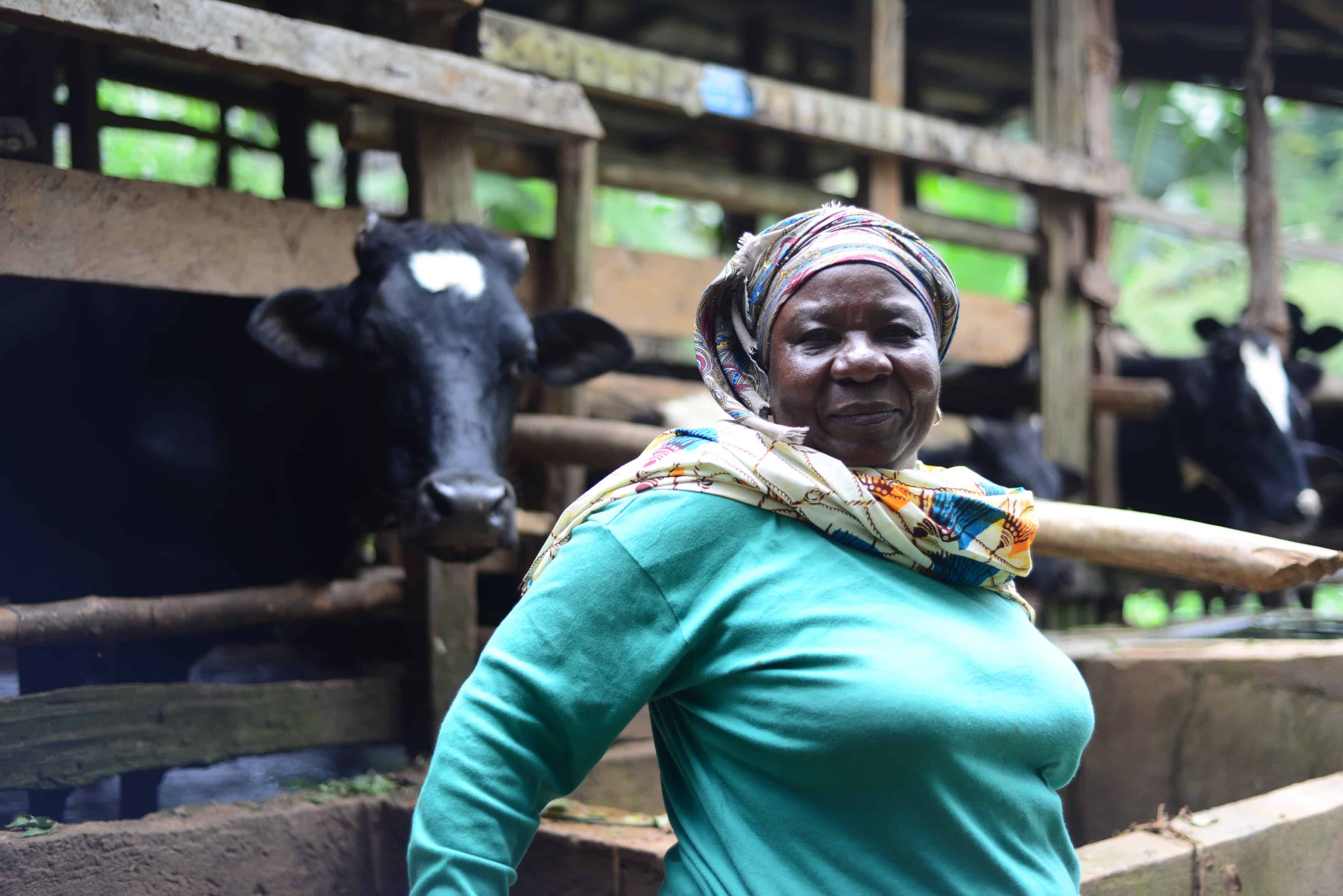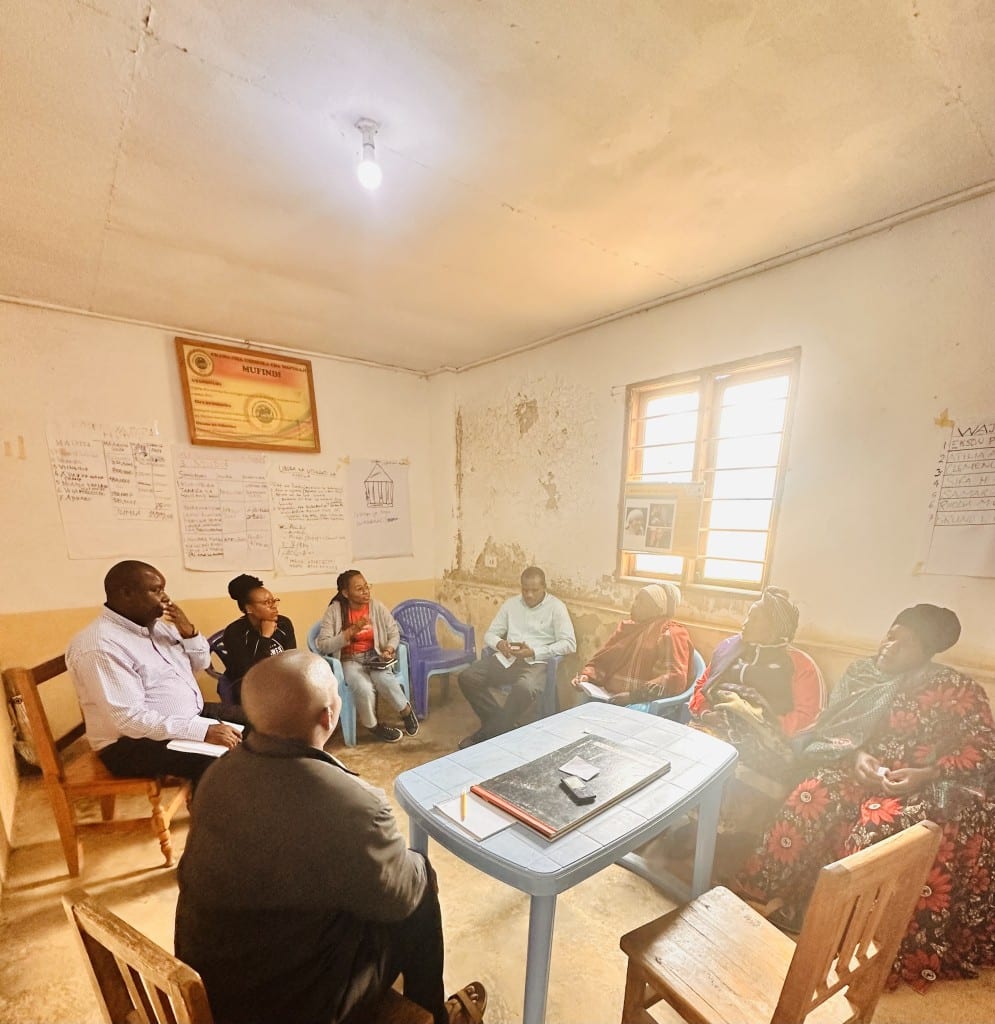The Mufindi Dairy Cooperative Story: From Business Case to Action
By Tolulope Babajide (Gender Network Manager-FSDA), Happy Sollo (Lead-Digital Financial Services & Infrastructure Development-FSDT) and Samora Lupalla (Project Portfolio Manager-FSDT)

The dangers of a single story is often applied to women’s economic empowerment in Africa with rural women generally perceived as lacking decision-making power in their communities and households. However, that is not often the case as there are rural communities in Africa that have women leaders in their traditional echelon- where women’s strong voices are heard and encouraged; where women businesses are supported and they have control over their productive assets. Such was the case for the Mufindi community, located in the Iringa region in Tanzania.
The Financial Sector Deepening Tanzania (FSDT) is developing a gender-based alternative credit scoring model throughout selected value chains (sugarcane, dairy, seaweed, and pulses) in Tanzania. A common denominator across these value chains is the high level of female participation at each stage. As part of the implementation, FSDT recently conducted a gendered scoping mission to the Southern Highlands of Tanzania on the dairy and pulses value chains. The mission’s goal was to gain a better understanding of how women farmers are clustered within these value chains, as well as to determine their level of productivity and how their financial needs have influenced their access to and usage of financial services and products.
During an examination of multiple Agricultural Marketing Cooperative Societies (AMCOS), Mufindi Dairy Cooperative (MUDCO) emerged as an exceptionally forward-thinking and women-inclusive cooperative. The AMCO, which had 627 members, established in its constitution the empowerment of women to assume more influential and decision-making roles in the dairy value chain; women comprised the board and executive management. During the scoping mission, FSDT was introduced to three women who hold executive management positions at the cooperative: Rhoda, Sifa, and Upendo. As we all sat down to converse, we observed that the three women were candid and unafraid to address household and cooperative decision-making concerns, their dairy businesses, and financial needs that would increase their productivity.

It was evident that the women were empowered throughout the dialogue. They were candid in offering their perspectives on a range of topics being deliberated, including illuminating household practices associated with the dairy value chain despite having male leaders in attendance. They asserted unequivocally that the responsibility for maintaining the cows, milking them, transporting the milk to the collection centres, and collecting the monthly payments rested with the women in their communities. The women are entrusted with the responsibility of budgeting the funds as soon as they receive them, with a portion of the funds designated for reinvestment in their dairy business and the remainder for household expenditures. The husbands become involved in the domestic expenses phase by offering the necessary assistance to meet the identified expenditures.
An additional noteworthy observation pertained to the women’s collaborative efforts to devise strategies for the expansion of their dairy enterprises. Collectively saving and supporting one another, they have established savings groups that will purchase high-quality cows capable of generating 20 to 25 litres of milk per day. Furthermore, the women actively pursue insights into optimal livestock husbandry techniques by inviting trainers to their meetings. This is done with the intention of optimising the productivity of their cows and ensuring efficient utilisation of by-products. The MUDCO’s female involvement rate of over 61 percent is attributable to the presence of savings and loans groups in the Igowole neighbourhood of Mufindi. These groups facilitate the mutual encouragement of women to engage in economic activities aimed at enhancing their income and fostering the exchange of experiences among themselves. The women also motivate one another to assume proactive positions in leadership and lead efforts to enhance their household’s economic conditions.
The example of Mufindi Dairy Cooperative is not only enlightening, but strongly reiterates the business case for investing in women and their businesses in Africa. Women smallholder farmers in the continent are not necessarily subsistent by choice or lack of knowledge, but by the dearth of sustainable investment and customised financial services and products.
In actualising the goal of channelling significant investment to women farmers within the aforementioned value chains, FSDT is collaborating with diverse stakeholders such as the FSD Network Gender Collaborative Programme, Creditinfo Tanzania, Tanzania Cooperatives Development Commission (TCDC) and financial institutions to develop a gendered alternative credit scoring model. The project will leverage alternative data sets from the existing women’s agricultural activities within the AMCOS and off takers. These alternative data sets will be used to establish a credit rating that will allow them to access and use a wide range of quality financial services, including device financing and microloans, to meet some of their immediate financial needs, while also building their history towards higher credit values for productivity ventures.
If you are interested in this project and would like to receive further updates on the progress, be sure to subscribe to our Quarterly Newsletter, and follow us on Facebook, Instagram and X (formerly Twitter) via the handle FSDTanzania, and also on Linkedin via Financial Sector Deepening Tanzania.

